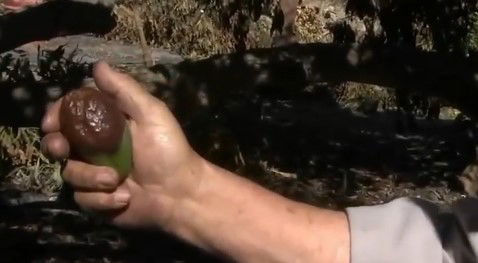Aid available for families searching for missing and murdered Indigenous relatives
By Alyssa Munoz
Click here for updates on this story
ALBUQUERQUE, New Mexico (KOAT) — Indigenous families searching for their missing loved ones say it’s an emotional roller coaster, but it can also be a financial burden.
KOAT spoke with four women who all face the same problems as they look for their missing siblings. One thing they continue to run into is finding money to continue searching.
“The not knowing is the hardest part, not knowing if we should be grieving or not knowing if he’s OK,” Kayla Ignacio said.
She’s been searching for her brother Remus Yazzie, who’s been missing out of the Farmington area for the last two and a half years.
“It’s not just women, it’s men too. Men are victims, too,” Becky Martinez said.
Martinez is advocating for her missing brother, Calvin Martinez, who was last seen in Grants five years ago.
“We were stressing how are we going to do this? How are we going to pay for this? Like I said, I was struggling and in between jobs,” said Georgianna Harrison.
Her sister, Ranelle Bennett, has been missing since June 2021 near Hogback.
“I need myself to be strong enough to endure and help and do what I can so I can be there for my niece and nephew when they need me,” Bennett said.
All the things you see at rallies: T-shirts, fliers, signs, they cost money. She adds the gas it takes to drive places for searches and following every lead, trying to find answers, they say all these things get expensive.
“It’s caused even some of us to have lost jobs or fallen behind on utilities,” Ignacio said. “But that’s where funding has come in and really made a difference.”
Three of the women received direct aid funds, which were an option for those searching for missing Indigenous relatives.
Deiandra Reid, coordinator for the Coalition to Stop Violence Against Native Women, said in some cases, the money is also there for people who have lost family members.
“The aid can be used for things like buying a banner, fliers, searching, the fuel the family will use to drive around and look for their loved one,” Reid said.
This is the second year the coalition has started offering aid. Reid said last year, they served 17 families, allowing up to $3,000 per family.
She said this type of help wasn’t available when her sister, Tiffany Reid, went missing.
“My mom was a stay-at-home parent at the time, so she didn’t have all the funding to drive around and look for my sister,” Reid said. “With aid like this, I think we could’ve done a little more.”
For those who are able to get help, they say it does make an impact.
“It’s expensive, you know, and when you want to print out like 100fliers, and they’re anywhere from $1 to $3 apiece, you’re spending $100 to $400 when you print stuff up,” Ignacio said. “Going to Grants or coming all the way out here when we don’t have the resources for, the funding really did come in handy. It really does come handy for those emergency trips when you got to just get up and go. “
Even though all four women are still looking for their loved ones, they say they want to help as many people as they can.
“I always have that question in my mind, if I find my sister and she comes back, am I going to stop? No, I’m not going to stop because there are other family members out there that are experiencing the same thing, and I want to be able to be that helping hand,” Harrison said.
Please note: This content carries a strict local market embargo. If you share the same market as the contributor of this article, you may not use it on any platform.

